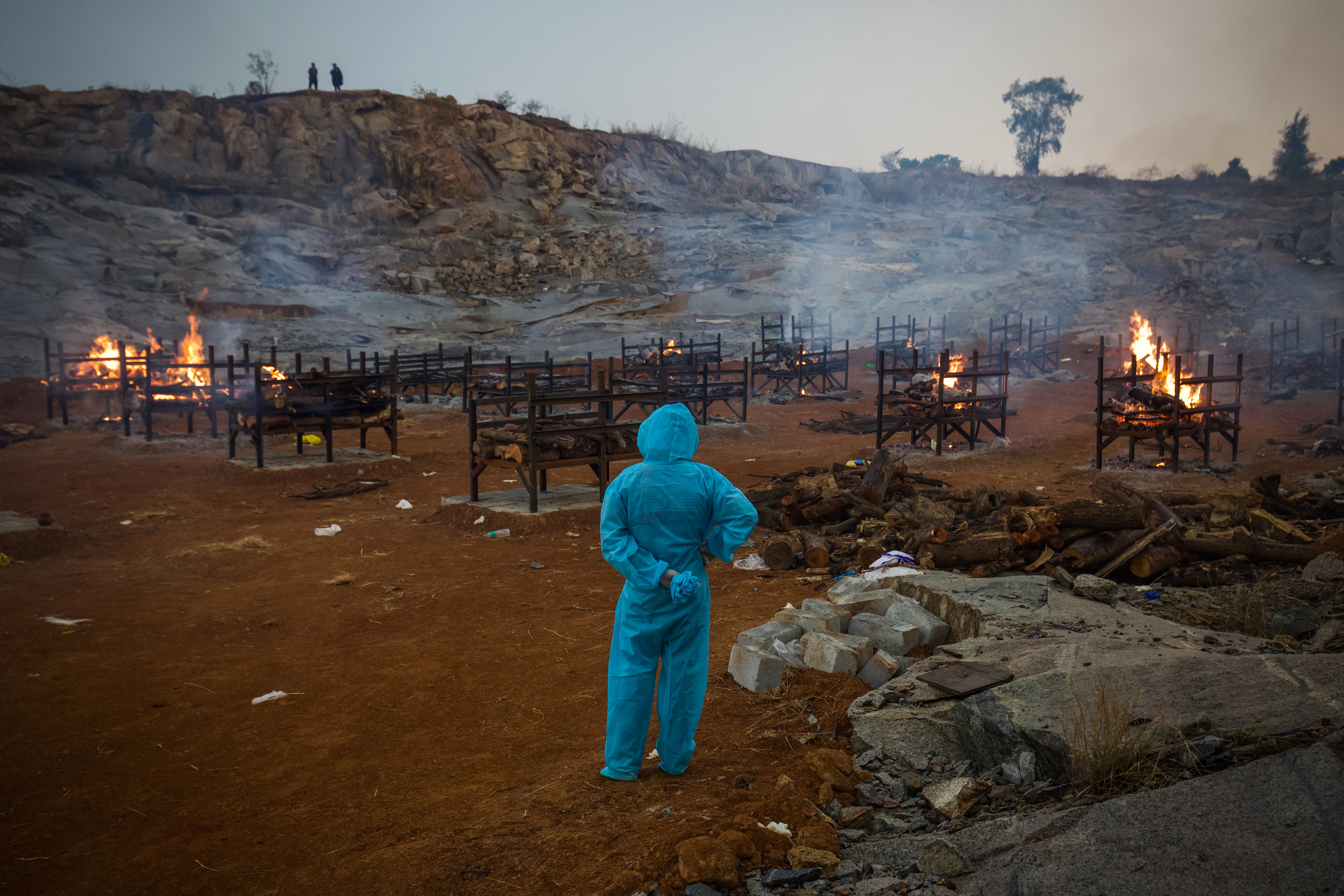Deadly Delta wave stole 240,000 lives in India between April and June in 2021, says UN report
UN report also projects slowdown of global economy in 2022 and 2023

A United Nations report released on Thursday has said that India lost 240,000 lives during the deadly second wave and warned against “similar episodes” in the next term.
“In India, a deadly wave of infection with the Delta variant stole 240,000 lives between April and June and disrupted economic recovery. Similar episodes could take place in the near term,” the flagship World Economic Situation Prospects report said.
According to the Indian government, 235,986 people died of Covid during that period. This was more than 50 per cent of the total Covid fatalities in India at that time as the country had reported around 418,000 deaths in all. The death toll as of Friday is 485,350.
Issuing a global warning, the report said: “With highly transmissible Omicron variant of Covid-19 unleashing new waves of infections, the human and economic toll of the pandemic are projected to increase again.”
Liu Zhenmin, the under-secretary-general of the United Nations Department of Economic and Social Affairs said that “without a coordinated and sustained global approach to contain Covid-19 that includes universal access to vaccines, the pandemic will continue to pose the greater risk to an inclusive and sustainable recovery of the world economy.”
The report also projected a slowdown of the global economy into the next year as it cited a number of problems along with new Covid waves, leading to rising inflationary pressures.
“After a global contraction of 3.4 per cent in 2020 and following an expansion of 5.5 per cent in 2021, the highest rate of growth in more than four decades, the world economy is projected to grow by 4 per cent in 2022 and 3.5 per cent in 2023,” said the report.
It also warned that higher inequality may emerge as a longer-term legacy of the coronavirus pandemic.
The report added that developing countries will be hit worse than their wealthier counterparts, with Africa, Latin America and the Caribbean projected to see significantly lower growth, compared to pre-pandemic projections. This is likely to lead to more poverty and less progress on sustainable development and climate action in these regions, said the report.
It added that for the vast majority of developing economies, a full recovery of GDP per capita will remain elusive, as compared to the developed economies, which are “expected to almost fully recover by 2023 relative to pre-pandemic projections.”
Special financial measures such as bailouts, better social protection and job support will aid strong recovery, said the report. “Governments around the world will need to continue accommodative fiscal stances and avoid the temptations of premature fiscal consolidation. This will help ensure a robust, inclusive and sustainable recovery,” it said.
Differences in fiscal space and structural constraints across countries will continue to limit the ability to support pandemic-related expenditures, the UN added.
Join our commenting forum
Join thought-provoking conversations, follow other Independent readers and see their replies
Comments
Bookmark popover
Removed from bookmarks